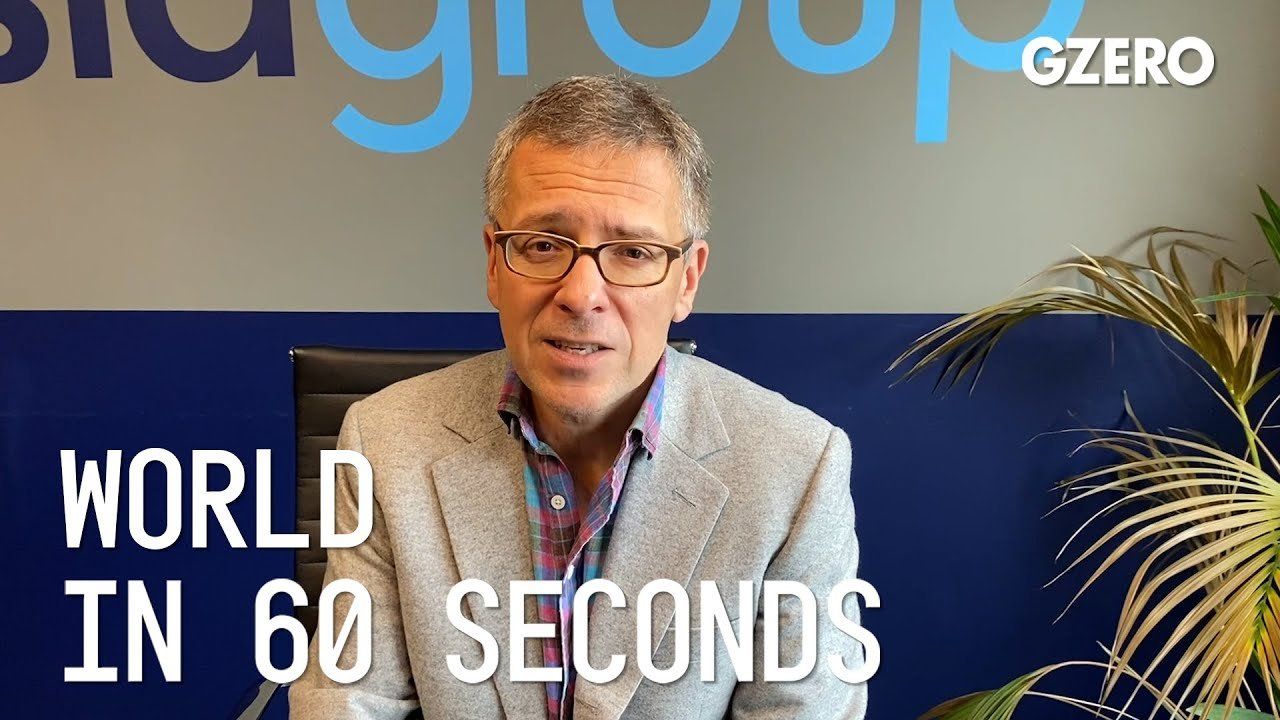Will Biden's reversal to allow F-16s to Ukraine be a game-changer? What is holding up a debt ceiling deal? Will the EU's lawsuit against Meta lead to a data-sharing agreement with the United States? Ian Bremmer shares his insights on global politics this week on World In :60.
Will Biden's reversal to allow F-16s to Ukraine be a game-changer?
Well, Putin says it is. Says that that would absolutely be a line that would be crossed and be irreversible. Of course, he said that about a bunch of things, and his credibility in a response to NATO providing defense to Ukraine has been significantly eroding over the last year. Of course, we also see not just F-16s, but we see Ukrainian armored troop carriers suddenly five miles deep in Russian territory, in Belgorod. The Ukrainians say it wasn't them, but they're very happy to embarrass Putin over that. Look, a lot of things that would've been seen as red lines six months ago now are not. Of course, that's good for the Ukrainians, but it also does mean that the tail risk dangers of this conflict are also going up.
What is holding up a debt ceiling deal?
Political dysfunction in the United States. Massive divisions inside the Democratic and Republican parties. I do think you can get to a deal between Biden and McCarthy, the House Speaker. I don't think that means that McCarthy can get the first deal he gets done through his own caucus. And that not only means there's more negotiation than the time that we presently have allotted, so probably, let's say, a one-month delay looks likely to me, but also, the potential that McCarthy himself has his leadership challenged, which is another problem that you don't need in the middle of this, is rising. So, I'm still quite worried about where this all heads.
Will the EU's lawsuit against Meta lead to a data-sharing agreement with the United States?
I'm not sure that we're there yet. I still see that the Europeans and the Americans are thinking about data from different perspectives. The Europeans are much more willing to support privacy and infringe on what the technology companies have to do, the regulations, in a much less company-friendly way than the Americans, who, of course, have these companies domiciled based in the United States. There is more coordination and talk of data security between the Americans and the Europeans, but I still think we're far from an overall regulatory framework.
- G7 alignment & US political challenges ›
- “Break the neck of the Russian army”: An interview with Ukraine’s UN envoy Sergiy Kyslytsya ›
- Biden returns to join US debt ceiling talks ›
- Ian Explains: The debt ceiling ›
- Hard Numbers: Meta gets fined, Nigeria gets refined, Sudan gets a ceasefire, Nagorno-Karabakh gets a hint of recognition ›
More For You
100 million: The number of people expected to watch the Super Bowl halftime performance with Bad Bunny, the Puerto Rican superstar and newly minted Album of the Year winner at the Grammys.
Most Popular
Think you know what's going on around the world? Here's your chance to prove it.
An imminent US airstrike on iran is not only possible, it's probable.
Americans are moving less — and renting more. Cooling migration and rising vacancy rates, especially across the Sunbelt, have flattened rent growth and given renters new leverage. For many lower-income households, that relief is beginning to show up in discretionary spending. Explore what's changing in US housing by subscribing to Bank of America Institute.
